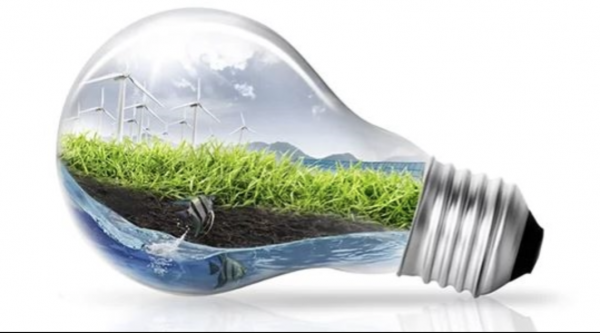Episode Highlights:
- The multiple crises the planet faces have solutions, says data scientist and head of research at Our World in Data, Hannah Ritchie.
- How to implement them remains a larger question for podcast co-host Rachel Donald, who interviewed Ritchie about her new book, “Not the End of the World: How We Can Be the First Generation to Build a Sustainable Planet.”
- In this episode, Donald challenges Ritchie on assumptions presented in the book, such as the notion that renewable energy will be adopted by low- and middle-income nations simply because it is cheaper.
- Ritchie says she intended to write an “apolitical” book, declining to discuss policy, but it’s difficult to see how many of the proposals would work without addressing geopolitical roadblocks and challenges that have repeatedly stymied these solutions.
The head of research at online publication Our World in Data, Hannah Ritchie, joins the Mongabay Newscast to discuss her new “radically hopeful” read, Not the End of the World: How We Can Be the First Generation to Build a Sustainable Planet. While containing a hopeful array of technological advancements and potential fixes to many environmental issues, Mongabay’s review of the book also finds that several challenges to the implementation of these solutions go unaddressed.
Ritchie claims many nations have “decoupled” consumption-based emissions from their economies, for instance, but this is not a consensus opinion among scientists, with some concluding there is “no evidence of the kind of decoupling needed for ecological sustainability.”
In this interview, co-host Rachel Donald probes this question and others.
Listen here:
- (00:00:00) – Introduction
- (00:03:57) – Renewable Energy and Political Will
- (00:07:06) – Realism of Tech Solutions
- (00:09:03) – Degrowth & Decoupling
- (00:17:33) – Doomerism, Inequality & Politics
- (00:28:45) – How does a transition happen?
- (00:36:51) – Hannah defends terminology used in the book
- (00:44:58) – Deforestation
- (00:53:11) – Our World In Data & Bias
- (01:06:19) – Mike & Rachel post-chat
- (01:26:19) – Credits
Solutions to deforestation, climate change, biodiversity loss and many others do exist, but implementing them is far more complex and politically challenging than Ritchie’s book presents. She stresses wanting to write an “apolitical” book; however, to address the scale and scope of the environmental challenges the world faces, acknowledging those geopolitical roadblocks seems essential, Donald stresses.
In the book, Ritchie does not wade into that conversation, instead claiming that the affordability of renewables will lead to their widespread adoption, and the book decries alternative economic models (such as degrowth) as being a hindrance to solutions. The author also does not acknowledge or use the well-established planetary boundary framework, which helps the world understand key planetary thresholds inside of which humanity can safely operate. Scientists say we’ve already breached six of those nine boundaries.
Rachel Donald is a climate corruption reporter and the creator of Planet: Critical, the podcast and newsletter for a world in crisis. Her latest thoughts can be found at 𝕏 via @CrisisReports and at Bluesky via @racheldonald.bsky.social.
Mike DiGirolamo is a host & associate producer for Mongabay based in Sydney. He co-hosts and edits the Mongabay Newscast. Find him on LinkedIn, Bluesky and Instagram.
Related reading from the planetary boundaries series:
Citations:
Ritchie, H. (2024). Not the end of the world: How we can be the first generation to build a sustainable planet. Little, Brown Spark.
Hubacek, K., Chen, X., Feng, K., Wiedmann, T., & Shan, Y. (2021). Evidence of decoupling consumption-based CO2 emissions from economic growth. Advances in Applied Energy, 4, 100074. doi:10.1016/j.adapen.2021.100074
Vadén, T., Lähde, V., Majava, A., Järvensivu, P., Toivanen, T., Hakala, E., & Eronen, J. (2020). Decoupling for ecological sustainability: A categorisation and review of research literature. Environmental Science & Policy, 112, 236-244. doi:10.1016/j.envsci.2020.06.016s
ZNetwork is funded solely through the generosity of its readers.
Donate